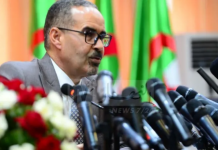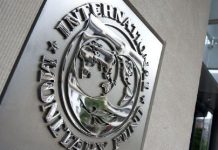"The Wahhabi mosques are funded worldwide" by Saudi Arabia, said Mr. Gabriel to the weekly Bild am Sonntag. "In Germany, many considered dangerous Islamists come from these communities," he added.
Wahhabism is a political-religious movement founded in the 18th century by Sheikh Mohammed bin Abdul Wahhab, founder of the Saudi state. He advocates an austere version of Sunni Islam as practiced by the first generation of Muslims. Extremist Islamist organizations such as the Islamic State Group (Isis) are inspired by the Wahhabi thought.
Sigmar Gabriel, also Economy Minister, called for action against Salafist mosques in Germany that "are no less dangerous than right-wing extremists."
"We will prevent Saudi Arabia from funding mosques in Germany," said on his side Thomas Oppermann, the president of the parliamentary group of the Social Democratic Party (SPD), partner of the Christian Democrats (CDU) of Angela Merkel within the grand coalition in power Sunday to the Welt am Sonntag.
For Mr. Oppermann, Wahhabism has provided a "complete ideology to the Islamic state and contributes to the radicalization of moderate Muslims in other countries. This is something we do not need and we do not want in Germany."
The SPD leaders’ comments came just days after the publication in the press of an internal document of the BND, the German intelligence, which describes as "impulsive" the foreign policy of the Saudi royal family. The document describes the country as a source of instability for the region.
According to the BND, Saudi Arabia seeks to establish itself as a "leader of the Arab world" with a foreign policy marked by "a strong military component and new regional alliances."
The German government Friday rejected criticism of the BND and stressed the important diplomatic role of the Saudi government in the conflicts in the Middle East.




























